God of wealth and prosperity is the god who looks after money, gold, and silver, bringing good luck to business and business. So where did the custom of worshiping the God of Fortune come from and what does it mean? That is certainly the question many people usually ask
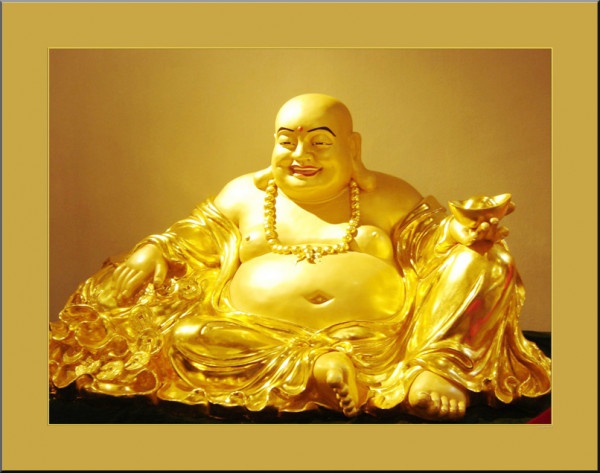
I. Who is the God of wealth and prosperity?
The God of wealth and prosperity in Chinese culture is a real historical figure named Pham Lai. He was a loyal servant of Viet Vuong Cau Tien. After assisting the king in calming the country. Pham Lai and his lover Tay Thi gave up the official residence to live in hiding. Since then, Pham Lai has become a successful and wealthy merchant. So people called him Dao Cong and honored him as the God of Wealth. The Chinese describe him as a man with a black face, thick beard, whip in hand, riding a black tiger.
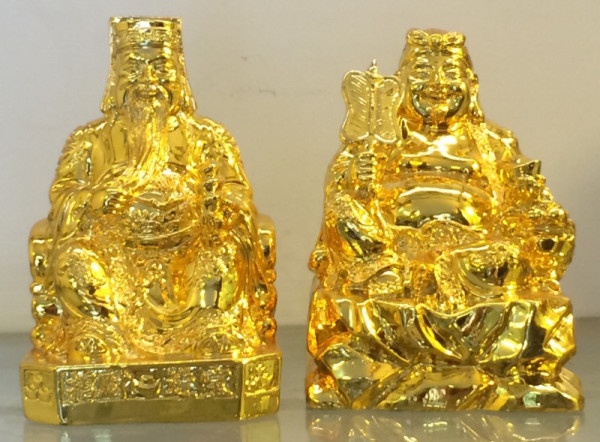
The image of the God of wealth and prosperity in Vietnamese beliefs is a white-bearded character sitting on a throne, holding a gold bar in front of his stomach, and looking very gentle and kind.
II. The origin of the custom of worshiping the God of wealth.
The custom of worshiping the God of wealth and prosperity originated in China. While in Vietnamese country, the custom of worshiping the God of Wealth appeared around the beginning of the twentieth century.
According to Chinese legend, there was a merchant named Au Minh, while passing through Thanh Thao Lake. They happened to meet the Water god and was given by the Water god to a servant named Nhu Nguyen. Au Minh brought Nhu Nguyen to raise him in the house. Since then, Au Minh’s business has prospered every day. On New Year’s day, Au Minh beat Nhu Nguyen for some reason. Nhu Nguyen was so scared that he crawled into the garbage heap and disappeared. Since then, Au Minh has lost business and soon became poor.
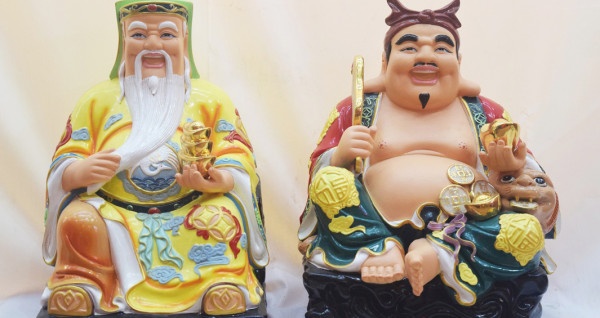
People believe that Nhu Nguyen is the God of Wealth and set up the Nhu Nguyen altar. That’s why the altar of the God of Fortune is often located in a hidden corner of the house. According to this legend, during the 3 days of Tet, there is a custom of abstaining from sweeping the house and sweeping the trash for fear of losing the hiding place of the God of Wealth.
III. What is the difference between the Greek God of Wealth and Prosperity and in other countries?
1. Greek God of Wealth and Prosperity
The Greek God of Wealth and Prosperity, known as Plutus or Pluto, holds a prominent place in Greek mythology. However, it’s important to note that other cultures and religions also have deities associated with wealth and prosperity, albeit with different names and characteristics.
In Greek mythology, Plutus is the personification of wealth and is often depicted as blind, symbolizing the unpredictable nature of wealth distribution. He is portrayed as both a giver and a withholder of wealth, reflecting the cyclical nature of prosperity.
2. In Roman mythology
In other cultures, similar deities are revered for their association with wealth and abundance. For example, in Roman mythology, the counterpart of Plutus is the god Mercury, known as the messenger of the gods and the patron of commerce. Mercury represents not only wealth but also trade, eloquence, and communication.
3. God of Wealth and Prosperity in Hinduism
In Hinduism, the goddess Lakshmi is worshipped as the embodiment of wealth and prosperity. She is believed to bring good fortune, abundance, and material well-being. Lakshmi is often depicted with lotus flowers and gold coins, symbolizing her connection to wealth and prosperity.
4. Chinese God of Wealth and Prosperity
In Chinese mythology, the deity Caishen is revered as the god of wealth and is highly esteemed for his ability to bring good luck and financial success. Caishen is often depicted in rich attire and carrying a wealth pot or a scroll with auspicious symbols.
While the concept of a deity associated with wealth and prosperity exists in various cultures, the specific characteristics, symbolism, and rituals associated with these deities may vary. However, the underlying belief in seeking blessings and divine favor for material abundance remains a common thread across different cultures.
IV. Meaning of the God of wealth and prosperity
Legend has it that the day the God of Fortune returns to heaven is the 10th day of the first lunar month. Since then, people have worshiped him every 10th day of the Lunar New Year to pray for a full year of wealth and prosperity. They call it the day of the God of Fortune. This day is extremely important for businessmen and traders. This is not only a day to thank the God of Wealth for blessing the past year but also a day to exchange for the astral of the God of Fortune to bless the owner for a year of prosperous business.
V. The meaning of the God of Wealth statue in feng shui
God of Wealth is the god who looks after money, gold, and silver, bringing good luck to business and business. With the desire that business will be more and more prosperous, trade is expensive. Money is like water, blessings knock on the door, so many families and businesses have placed a statue of the God of Fortune in their homes, shops, or offices.
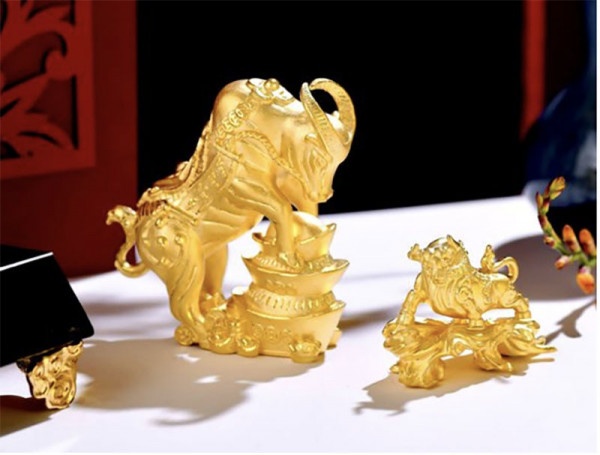
VI. The location of the God of Fortune statue brings great benefits to the owner
Unlike the ancestral altar, the altar of the God of wealth and prosperity must be placed on the ground, in the corner of the house. The best position to place the God of Wealth statue is opposite the main door. So that when entering the house, you can see the God of Fortune. In feng shui, the God of Wealth welcomes new air into the house. And converts it into prosperous energy circulating in the house.
Do not place the God of wealth and prosperity statue near the trash can, toilet, or kitchen to avoid uncleanness. Nor should it be placed in a hidden corner because fortune cannot be gathered. In cases where the altar cannot be placed with its back to the wall due to choosing a direction. It is necessary to create a wall to avoid sharp corners behind the altar and help it lie firmly.
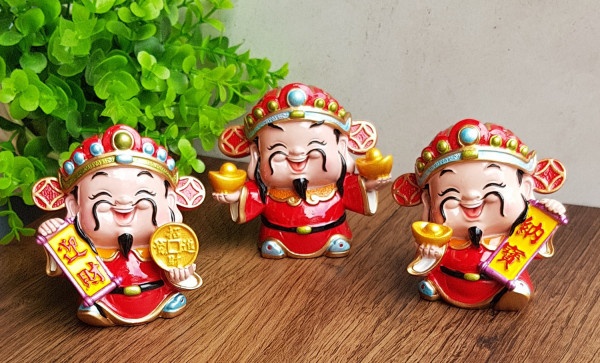
In the middle of the altar of the God of Fortune, place a bowl of incense and avoid touching the bowl when cleaning the altar. The flowerpot is placed on the right-hand side, the fruit plate on the left-hand side. Flowers offered to the God of wealth and prosperity are roses, chrysanthemums, and gerberas. Fruit should choose five fruits.
People often worship the God of Fortune together with Mr. On the left (looking from the outside) is Mr. Than Tai, on the right is Tho Dia. Put in front of the incense bowl a jar of rice, a jar of salt, and a full jar of water.
VII. Taboos when worshiping the God of Wealth
- Abstain from placing the altar of the God of Wealth overlooking the direction of the Five Demons. That is the Northeast and Southwest directions.
- Don’t wear sloppy and ragged clothes when worshiping.
- Abstain from swearing before, during, and after the offering.
- Don’t bring offerings to the God of wealth and prosperity to outsiders
- Abstain from using flashing lights and electric bulbs because they easily create a bad airfield, negatively affecting worship.
VIII. What to buy for luck on God of Wealth Day?
Every year, January 10, according to folk beliefs, is the day of the God of wealth and prosperity. On this day, people invite each other to buy gold to pray for good luck and fortune in the whole new year.
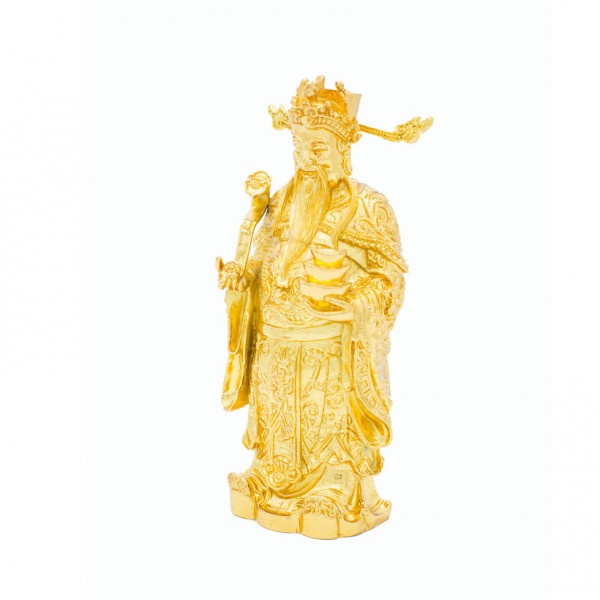
If you do not want to “mortify” at the gold shops on the first day of the year, you can choose to buy products from 24K gold to bring you good luck and fortune. Here is a suggestion you can refer to.
Statue of God of Fortune riding a horse inlaid with gold
The God of Wealth is a person who specializes in managing money on earth and distributing fortune to people. Therefore, he is worshiped by the people, especially for those who do business in their homes or shops. There is always a statue of the God of wealth and prosperity.
(1608)
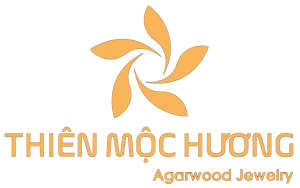




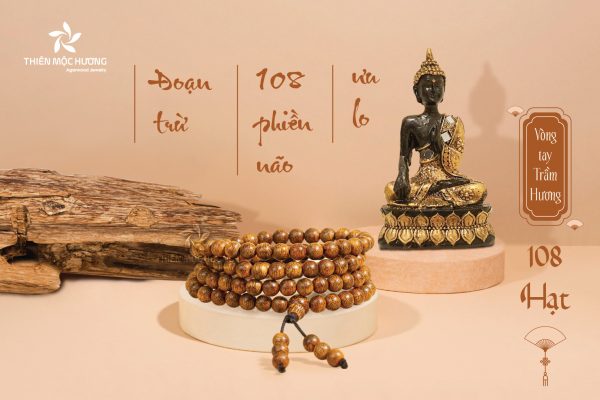
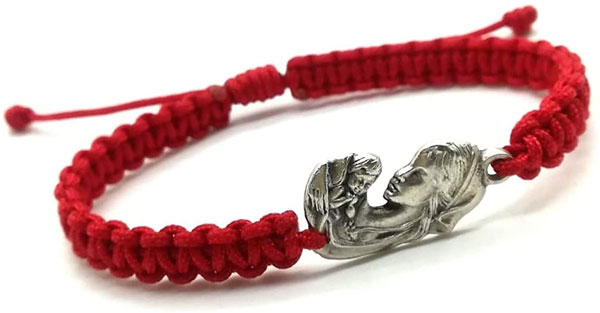


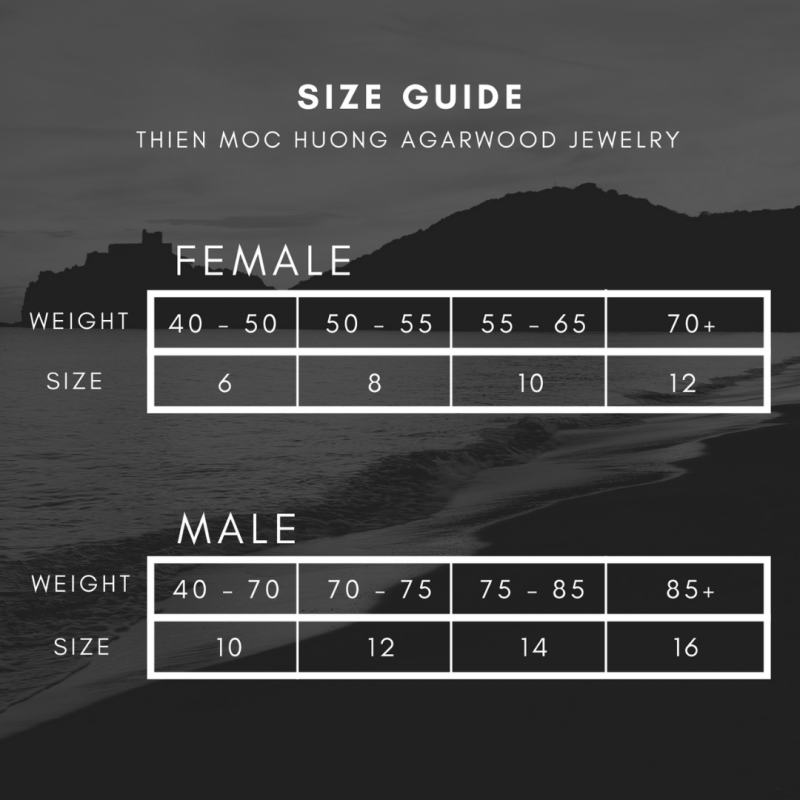
I am Kenn Chua from Singapore x I am very interested in your money god’s item as well as would like to buy two small ceramic ones if you have x please lete know the price and shipping cost to Singapore soonest x tq
Hi Kenn Chua, Thank you for your interest in tmhagarwood. Unfortunately, we do not currently offer this product. We will consider distributing these products in the future! Thank you and have a nice day